
When we think of the past, one of the first thoughts that runs through our mind is how people lived without electricity. Nowadays, we can’t even imagine a day without it because all of our appliances and devices run on electricity.
The truth is, however, that most homes don’t have enough power outlets to keep everything running and charged, so most of us rely on power strips without being aware that appliances that consume a lot of energy become dangerous fire hazards when we plug them into a power strip.
Although power strips are the thing to go to when it comes to charging your phone or power an entertainment setup, there are certain devices that should never be plugged into a power strip.
Air conditioners, space heaters, toasters, and other appliances that use high wattage can easily cause power strips to overheat, which can easily lead to a fire hazard.
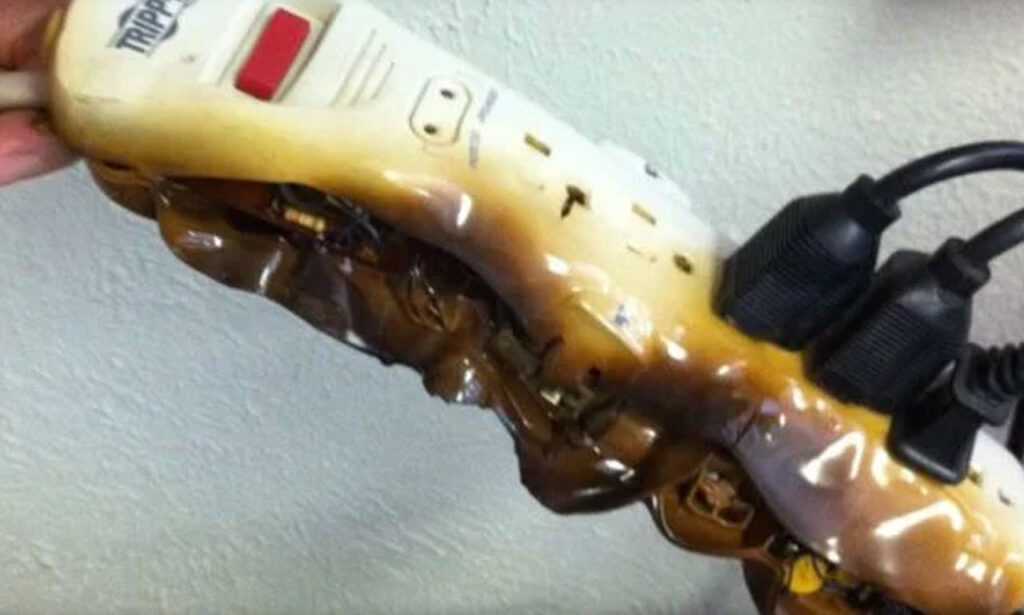
Even before plugging anything into a power strip consider the ammount of power they support. This is usually listed on the product itself.
High-capacity appliances need to draw a lot of power through an electrical circuit to work. Keep in mind that an appliance does not need to be large in size to draw large amounts of power.
Below is the list of appliances that should never be plugged into a power strip.
1. The oven: Even though the oven is not used continually, it is a power-hungry appliance that should not be plugged into a power strip. In fact, it should be plugged into its own wall outlet on its own circuit.
2. Refrigerator: Refrigerators require a lot of power and frequently cycle on and off which can easily overload a power strip and cause damage. Much like the oven, refrigerators require a wall outlet dedicated solely to powering the appliance.
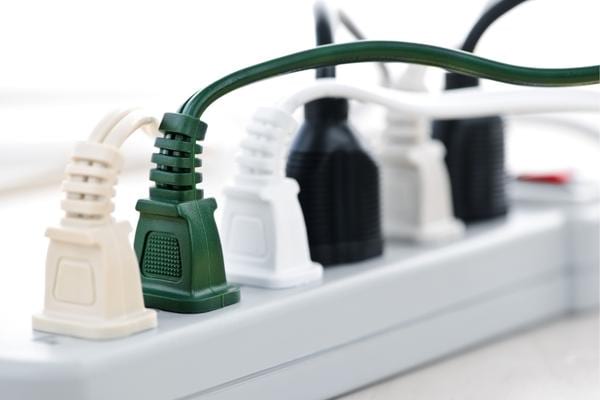
3. Washing Machine: When turned on, washing machines pull a lot of power. This is the main reason why these appliances shouldn’t share a receptacle with any other appliance or device.
Most washing machines use a max of up to 1400 watts, putting it dangerously close to the max load of most power strips. On top of that while working, washing machines are usually left unattended and work longer hours, at least an hour, which is long enough for a power strip to overheat.
4. Heating: Portable heaters should never be plugged into a power strip because most of them use 1,500 watts of energy on their high setting and they usually run for extended periods of time.
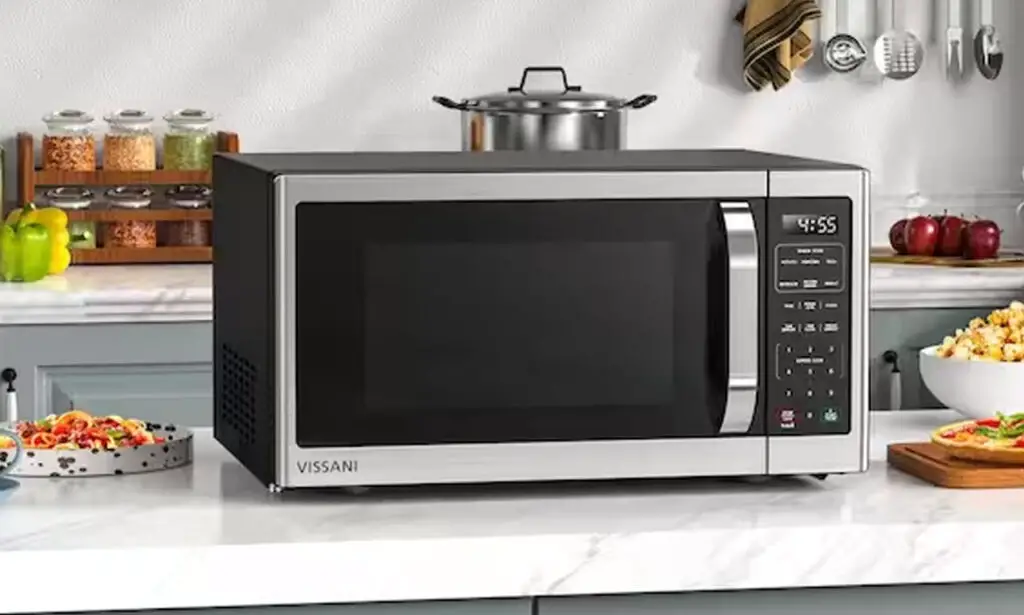
5. Microwave: Since they consume a lot of energy when used, most microwave ovens are plugged into their own receptacle and that is always a good practice.
6. Coffee Maker: Those who own a coffee maker are not fully aware of the power these appliances use, and this is why they should never be plugged into any sort of power strip or extension cord.
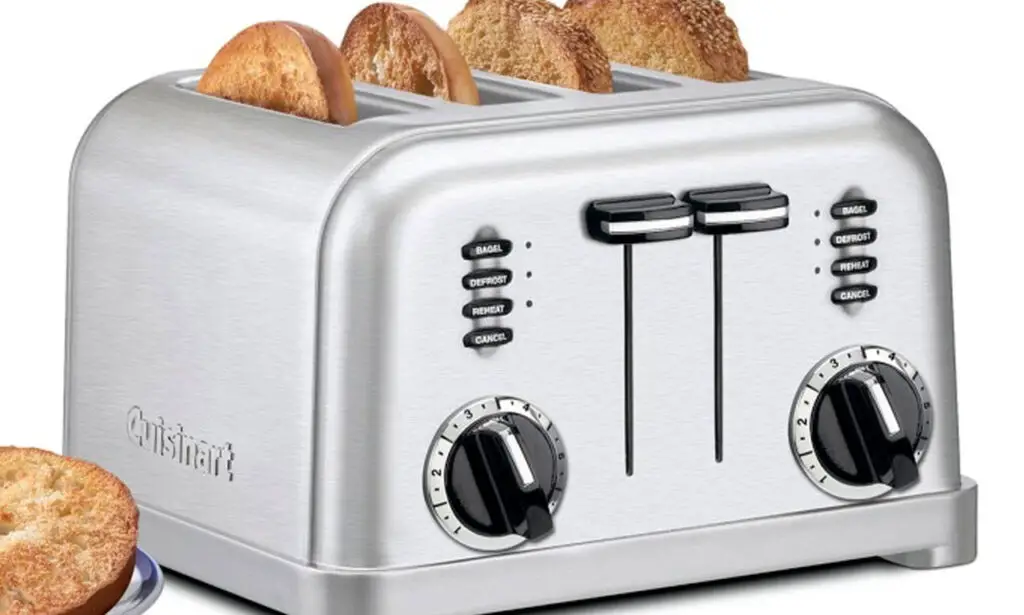
7. Toaster: You may think that browning up slices of bread or bagels doesn’t require a lot of energy, but the truth is that toasters use a lot of energy when in use and they should be plugged directly into the receptacle rather than a power strip.
8. Another Power Strip: Power strips are not meant to be used in conjunction with another power strip, although many people do exactly that. This, however, violates most safety codes because it can easily lead to overloading the electrical system.
9. Electronics (Computer, TV, Router): These types of electronic devices don’t necessarily use a lot of power on their own, but they are sensitive to surges and you can find yourself with a burnt out computer or TV very quickly if you plug them into a power strip.
If you want to protect these sensitive devices from power surges, opt for a power strip that functions as a surge protector.
A Journey Through Time: The History of Kitchen Tools

Have you ever given the history of the kitchen tools we use on a daily basis any thought? Let’s go back in time today to discover the intriguing past of one such necessary appliance: the mixer.
The Inaugural Years of Blending
Our narrative starts in the middle of the 1800s, when innovators all around the world began experimenting with ways to simplify and expedite the process of combining ingredients. A Baltimore tinner named Ralph Collier received the first mixer with revolving parts patent in 1856. In less than a year, E.P. Griffith unveiled the whisk, a game-changing appliance for mixing substances. The hand-turned rotary egg beater invented by J.F. and E.P. Monroe left their imprint as well; it was patented in the US in 1859.

The Dover Stamping Company noticed these early prototypes and purchased the patent from the Monroe Brothers. Known as the “Dover beater,” the Dover egg beaters rose to fame in the United States. The renowned Dover beater was featured in a wonderful dessert dish called “Hur-Mon Bavarian Cream” published in the Cedar Rapids, Iowa Gazette in February 1929, demonstrating how highly esteemed these beaters were.
Welcome to the Age of Electricity
The first electric mixer didn’t appear until 1885, owing to the creative imagination of American inventor Rufus Eastman. But it was the enormous commercial mixers made by Hobart Manufacturing Company that really changed the sector. They debuted a revolutionary new model in 1914 that completely altered the mixer market.
Consumers began to choose the Hobart KitchenAid and the Sunbeam Mixmaster, two well-known American brands, in the early 20th century. However, until the 1920s, when they started to become widely used for domestic use, domestic electric mixers remained a rarity in most families, despite their popularity.
The Stand Mixer: An Innovation
Engineer Herbert Johnston of the Hobart Manufacturing Company had an epiphany in 1908 when he saw a baker using a metal spoon to stir bread dough. After realizing there had to be a simpler method, he set out to develop a mechanical equivalent.
The majority of sizable bakeries had used Johnston’s 20-gallon mixer as regular equipment by 1915. The Hobart Manufacturing Company unveiled the Kitchen Aid Food Preparer, eventually dubbed the stand mixer, just four years later in 1919. This ground-breaking creation swiftly established itself as a national kitchen standard.
This indispensable kitchen appliance has come a long way, starting with the hand-turned rotary beaters of the 19th century and continuing with the invention of electric motors and the stand mixer. Many changes have been made to it to make our lives in the kitchen easier.s
Therefore, remember the long history of your reliable mixer the next time you whip up some cookies or mix up a delicious cake batter. It is evidence of human inventiveness and the drive to make daily tasks simpler.
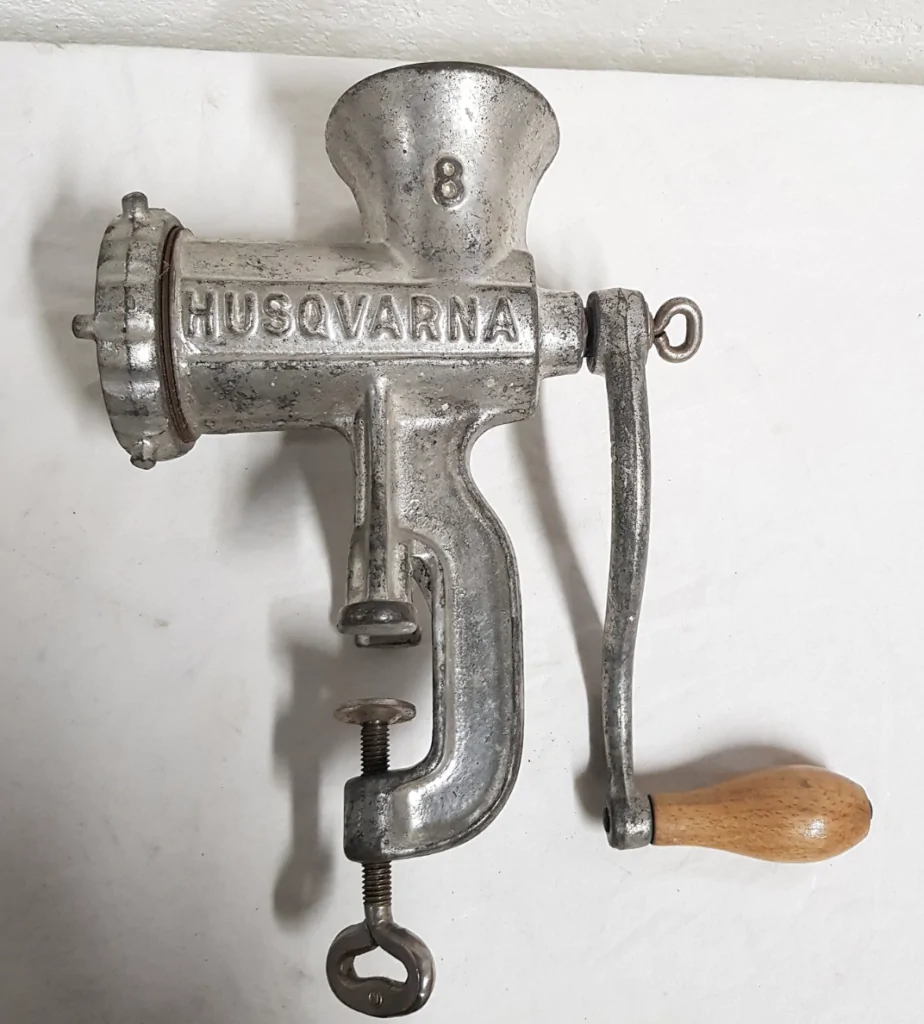
Apart from the mixer, another useful culinary instrument with an intriguing past is the meat grinder. This device, which is sometimes referred to as a “meat mincer” in the UK, is used for chopping and combining raw or cooked meat, fish, vegetables, and other ingredients.
Karl Drais created the first iteration of this amazing device in the nineteenth century, which begins the history of the meat grinder. Long, thin strands of flesh were produced by hand-cranked meat grinders that forced the meat through a metal plate with tiny pores.
As electricity became more widely available and technology advanced, manufacturers started producing meat grinders that were powered. The smooth and consistent processing of many pounds of beef is made possible by these contemporary electric grinders. The functionality of meat grinders has been greatly increased with the addition of attachments for tasks like juicing, kibbe, and sausage-making, which are included with some versions.
Thus, keep in mind the adventure and creativity that led to the creation of your meat grinder the next time you’re chopping meat for a delicious dish or experimenting with handmade sausages. It’s evidence of how kitchen gadgets have developed to enhance and facilitate our culinary explorations.



Leave a Reply